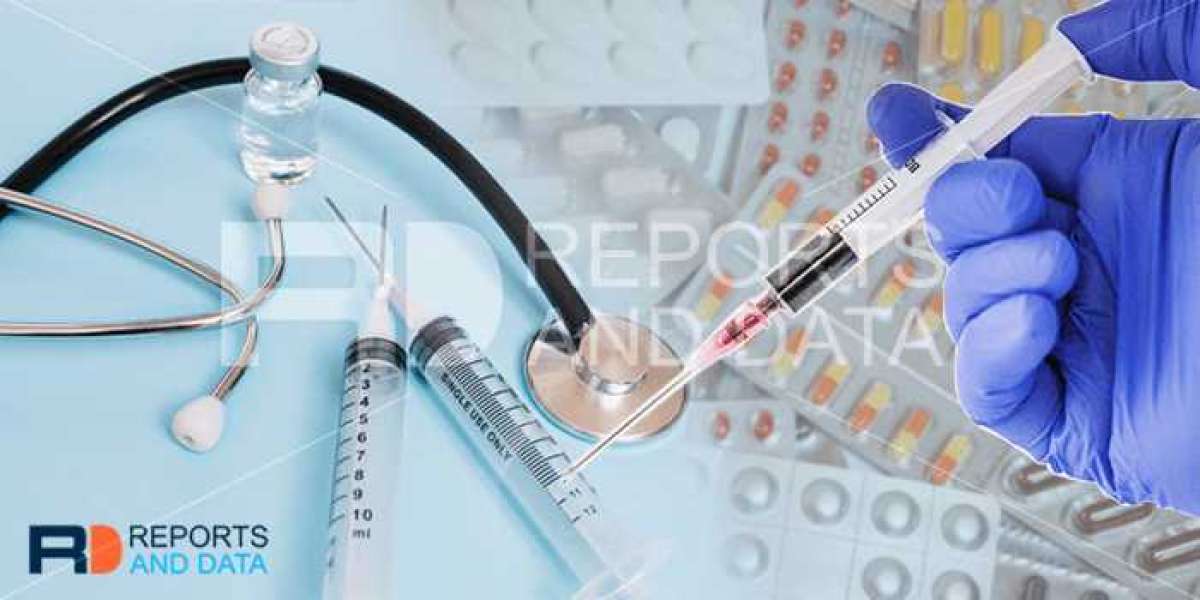Introduction
Brief Overview
Laboratory informatics refers to the specialized application of information technology in laboratories to optimize data collection, management, and analysis. It encompasses various systems and software designed to enhance laboratory efficiency, ensure data accuracy, and streamline workflow processes. As the importance of data-driven decision-making grows, laboratory informatics has become a cornerstone of modern scientific research, healthcare, and industrial applications.
Market Size in 2023
In 2023, the North America laboratory informatics market reached a significant milestone with a valuation of approximately USD 1456.64 million. This growth reflects the increasing adoption of advanced data management solutions in laboratories across various sectors, including pharmaceuticals, biotechnology, and healthcare.
Projection for 2032
The market is projected to continue its upward trajectory, with an estimated compound annual growth rate (CAGR) of 6.5% from 2024 to 2032. By 2032, the market is expected to reach around USD 2558.49 million. This growth will be driven by ongoing technological advancements, the rising demand for efficient data management, and the expanding applications of laboratory informatics in different industries.
Market Dynamics
Drivers
Increasing Demand for Data Management and Integration The explosion of data generated in laboratories necessitates robust data management systems. Laboratory informatics solutions facilitate seamless data integration, storage, and retrieval, enabling researchers to manage large volumes of data efficiently.
Rising Adoption of Laboratory Automation Automation in laboratories enhances productivity and reduces human errors. Informatics systems play a crucial role in automating data capture, analysis, and reporting, leading to more accurate and reliable results.
Growing Focus on Precision Medicine and Personalized Healthcare Precision medicine relies heavily on data analytics to tailor treatments to individual patients. Laboratory informatics systems support the collection and analysis of vast amounts of genetic, clinical, and experimental data, fostering advancements in personalized healthcare.
Challenges
High Implementation Costs The initial investment required for implementing advanced laboratory informatics solutions can be substantial. This includes costs for software, hardware, training, and maintenance, which may be a barrier for smaller laboratories or those with limited budgets.
Data Security Concerns The sensitive nature of laboratory data, especially in healthcare and pharmaceutical sectors, raises significant security concerns. Ensuring data privacy and protecting against cyber threats are critical challenges that need to be addressed.
Complexity of Integrating New Technologies with Legacy Systems Many laboratories still operate with legacy systems that are not easily compatible with modern informatics solutions. Integrating new technologies with existing infrastructure can be complex and time-consuming, requiring substantial effort and expertise.
Opportunities
Advancements in AI and Machine Learning Artificial intelligence (AI) and machine learning (ML) are revolutionizing laboratory informatics. These technologies enable advanced data analysis, predictive modeling, and automation, providing laboratories with powerful tools to enhance research and operational efficiency.
Expansion of Biobanks and Biorepositories The growth of biobanks and biorepositories, which store biological samples for research, presents significant opportunities for laboratory informatics. Effective data management systems are essential for cataloging, tracking, and analyzing these samples, facilitating breakthroughs in medical research.
Growth in Pharmaceutical and Biotechnology Industries The pharmaceutical and biotechnology industries are major users of laboratory informatics. The increasing demand for new drugs and therapies drives the need for advanced data management solutions to support research and development, regulatory compliance, and quality control.
Get a Free Sample Report with Table of Contents - https://www.expertmarketresearch.com/reports/north-america-laboratory-informatics-market/requestsample
Market Segmentation
By Product Type
Laboratory Information Management Systems (LIMS) LIMS are the backbone of laboratory informatics, providing comprehensive data management solutions. They support sample tracking, workflow automation, data analysis, and regulatory compliance, making them indispensable tools in modern laboratories.
Electronic Lab Notebooks (ELN) ELNs replace traditional paper lab notebooks, offering digital solutions for recording experimental procedures, observations, and results. They enhance data accessibility, collaboration, and traceability, contributing to improved research efficiency and integrity.
Scientific Data Management Systems (SDMS) SDMS focus on the management and storage of scientific data, including raw instrument data, processed data, and metadata. They provide centralized repositories for data storage, facilitating easy access, sharing, and retrieval of information.
Laboratory Execution Systems (LES) LES are designed to streamline and automate laboratory workflows, ensuring that procedures are followed consistently and accurately. They provide step-by-step instructions, real-time data capture, and integration with other informatics systems.
Others This category includes specialized informatics solutions tailored to specific laboratory needs, such as chromatography data systems (CDS) and scientific workflow systems.
By Delivery Mode
On-premises On-premises solutions involve installing software and hardware locally within the laboratory. This model offers greater control over data security and system customization but requires significant upfront investment and ongoing maintenance.
Cloud-based Cloud-based solutions are hosted on remote servers and accessed via the internet. They offer scalability, cost-effectiveness, and remote access capabilities, making them attractive options for many laboratories.
Web-based Web-based solutions are similar to cloud-based systems but are accessed through web browsers. They provide flexibility and ease of use, allowing laboratories to leverage advanced informatics tools without extensive IT infrastructure.
By End-User
Pharmaceutical and Biotechnology Companies These companies rely heavily on laboratory informatics for drug discovery, development, and quality control. Informatics solutions enable efficient data management, regulatory compliance, and collaboration across research teams.
Academic and Research Institutes Academic and research institutes use laboratory informatics to support scientific research, data analysis, and collaboration. Informatics systems enhance research efficiency, data integrity, and reproducibility of results.
Hospitals and Diagnostic Laboratories Hospitals and diagnostic laboratories utilize informatics solutions for clinical testing, patient data management, and regulatory compliance. These systems improve operational efficiency, data accuracy, and patient care.
CROs (Contract Research Organizations) CROs provide research services to pharmaceutical and biotechnology companies. Laboratory informatics systems enable CROs to manage data effectively, ensure compliance, and deliver high-quality research outcomes.
Others This category includes government agencies, environmental testing laboratories, and other organizations that use laboratory informatics for various applications.
Competitive Landscape
Major Players
Dassault Systèmes
- Overview of the Company Dassault Systèmes is a global leader in 3D design software, digital mock-up, and product lifecycle management solutions. The company offers a range of laboratory informatics solutions designed to enhance scientific innovation and collaboration.
- Key Products and Services Dassault Systèmes provides LIMS, ELN, and SDMS solutions that integrate seamlessly with their broader suite of scientific and engineering software.
- Recent Developments The company has been actively expanding its capabilities through acquisitions and partnerships, focusing on integrating AI and ML technologies into its informatics solutions.
STARLIMS Corporation
- Company Background STARLIMS Corporation, a subsidiary of Abbott Laboratories, specializes in LIMS and other laboratory informatics solutions. The company has a strong presence in the healthcare, pharmaceutical, and environmental testing sectors.
- Product Portfolio STARLIMS offers a comprehensive suite of LIMS solutions that support data management, regulatory compliance, and operational efficiency.
- Market Strategies The company focuses on innovation and customer-centric solutions, leveraging its expertise in laboratory informatics to address the evolving needs of its clients.
Thermo Fisher Scientific Inc.
- Company Profile Thermo Fisher Scientific is a global leader in scientific research and laboratory services. The company provides a wide range of laboratory informatics solutions to enhance research productivity and data management.
- Laboratory Informatics Solutions Thermo Fisher Scientific's informatics portfolio includes LIMS, ELN, SDMS, and LES solutions, designed to meet the needs of diverse laboratory environments.
- Strategic Initiatives The company invests heavily in R&D and strategic acquisitions to expand its informatics capabilities and stay at the forefront of technological advancements.
Labware, Inc.
- Overview Labware, Inc. is a leading provider of LIMS and ELN solutions. The company serves a wide range of industries, including pharmaceuticals, biotechnology, and environmental testing.
- Key Offerings Labware's informatics solutions are known for their flexibility, scalability, and robust functionality, making them suitable for various laboratory applications.
- Innovations and Partnerships Labware continuously innovates its product offerings and collaborates with industry partners to deliver cutting-edge solutions that address the dynamic needs of the laboratory informatics market.
Technological Advancements
AI and Machine Learning in Laboratory Informatics
AI and ML are transforming laboratory informatics by enabling advanced data analysis and predictive modeling. These technologies can analyze large datasets quickly, identify patterns, and generate insights that drive scientific discovery and operational efficiency. AI-powered informatics systems can automate routine tasks, such as data entry and analysis, reducing human error and freeing up researchers to focus on more complex activities.
Integration of IoT and Cloud Computing
The integration of the Internet of Things (IoT) and cloud computing in laboratory informatics is revolutionizing data connectivity and real-time monitoring. IoT devices can collect data from various instruments and sensors in real-time, while cloud computing provides scalable storage and processing power. This combination enhances data accessibility, collaboration, and decision-making, leading to more efficient and effective laboratory operations.
Regulatory Environment
North American Regulations
The regulatory environment in North America plays a crucial role in shaping the laboratory informatics market. Laboratories must comply with various regulations, such as the Clinical Laboratory Improvement Amendments (CLIA) and Good Laboratory Practice (GLP) guidelines, which set standards for laboratory operations and data management. Compliance with these regulations ensures data integrity, accuracy, and reliability, which are essential for scientific research and clinical testing.
Data Privacy and Security
Data privacy and security are paramount in laboratory informatics, especially in sectors handling sensitive information, such as healthcare and pharmaceuticals. Regulations like the Health Insurance Portability and Accountability Act (HIPAA) and the General Data Protection Regulation (GDPR) mandate strict data protection measures. Laboratory informatics systems must incorporate robust security features, such as encryption, access controls, and audit trails, to safeguard data and ensure compliance with these regulations.
Market Forecast (2024-2032)
Market Size Projections
The North America laboratory informatics market is projected to grow steadily over the forecast period, driven by technological advancements and increasing demand for efficient data management solutions. The market size is expected to expand from USD 1456.64 million in 2023 to around USD 2558.49 million by 2032, representing a CAGR of 6.5%.
Trends and Predictions
Emerging trends in laboratory informatics include the increasing adoption of AI and ML, the integration of IoT and cloud computing, and the growing focus on data security and compliance. These trends are expected to drive innovation and create new opportunities for market growth. The pharmaceutical and biotechnology industries will continue to be major drivers of the market, with significant investments in R&D and laboratory automation.
Future Outlook
The future of the laboratory informatics market in North America looks promising, with continuous innovation and technological advancements expected to drive growth. Stakeholders, including laboratories, informatics solution providers, and regulatory bodies, must collaborate to address challenges and leverage opportunities to achieve sustained market success. As the market evolves, laboratory informatics will play a critical role in enhancing research productivity, data accuracy, and operational efficiency, contributing to advancements in science and healthcare.
Media Contact:
Company Name: Claight Corporation
Contact Person: Jhon Roy, Business Consultant
Email: sales@expertmarketresearch.com
Toll Free Number: US +1-415-325-5166 | UK +44-702-402-5790
Address: 30 North Gould Street, Sheridan, WY 82801, USA
Website: www.expertmarketresearch.com






